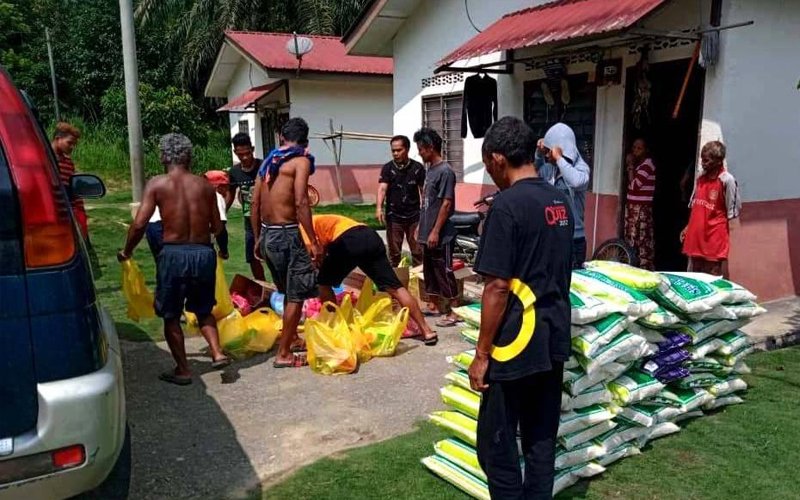PETALING JAYA: An activist has criticised the federal government for being out of touch with the Orang Asli’s predicament in its efforts to channel aid to them during the movement control order (MCO).
Centre for Orang Asli Concerns (COAC) coordinator Colin Nicholas said the government was not aware of the specific supplies the different families needed, adding that the aid packages delivered now were all uniform.
He told FMT that this was a mistake as there were families of different sizes and needs in each village, leading to unmet needs for some.
“Some communities don’t need certain things, some may want milk powder for their babies. Some families are just two persons, while some have 11 people,” he said.
Nicholas added that there was an instance in Kuala Krau, near Temerloh, Pahang, where 65 food packages for 65 families were delivered, although there were actually 136 families residing in that village.
“There are also many Orang Asli who have gone into the forests.
“They (the government) couldn’t possibly have contacted them. So, how can they say that they’ve given aid to everybody?”
This comes after Defence Minister Ismail Sabri Yaakob yesterday dismissed claims that the Orang Asli were sidelined in the distribution of food aid.
In his daily press conference, Ismail said the distribution had begun since the start of the MCO under the Orang Asli Development Department (Jakoa), with up to RM5 million worth of supplies already distributed to the community.
However, Jakoa director-general Juli Edo had reportedly said the department was facing problems in distribution due to a lack of manpower and resources to deliver the aid.

Nicholas said the contradictory statements showed that Putrajaya was unaware and out of touch with the community’s situation, adding that it was clear that not all families were obtaining the aid.
“Even the director-general himself says they cannot cope. Who are we to believe? A minister who just makes a statement or the Orang Asli government official who knows what’s happening on the ground?”
He said Putrajaya should first recognise the problem, then consult the relevant NGOs and organisations to come together and help, stressing that this was also key to avoiding any overlaps in aid distribution efforts.
The support measures for the Orang Asli were often disorganised and uncoordinated, Nicholas said, causing both overlaps and insufficiencies in aid to villages.
Nicholas also called on Jakoa to provide an updated list on the villages they have reached out to in order to prevent such overlaps, adding that COAC has a list up on its website.
He highlighted how the NGO resolved the issue of logistics by directing monetary aid to the village leaders who then purchased the required supplies according to the community’s needs.
“The leaders on the ground know what it’s like in their own areas. They know the situation, they know how many, how much and who to give.
“So, logistically, too, we solved a lot of problems because we don’t have to bring the food over, which is the problem the government is facing now,” he said.
Nicholas stressed that the Orang Asli’s need for aid was all the greater as the completion of the MCO would not yet mean the end of their problems.
“It will take some time for the Orang Asli to recover and come back to their pre-MCO status, especially those who are wage earners.”
CLICK HERE FOR THE LATEST DATA ON THE COVID-19 SITUATION IN MALAYSIA


